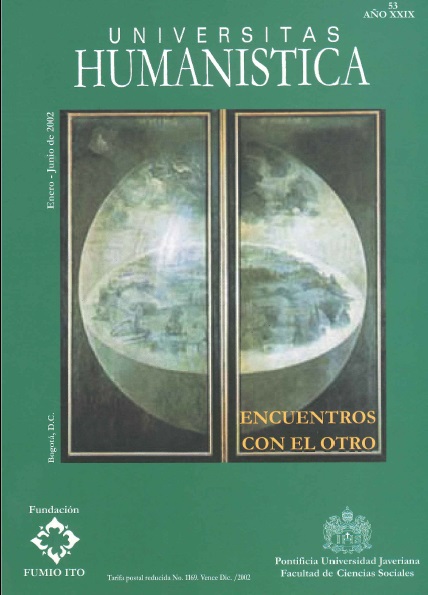Abstract
De la bisexualidad aún se duda; muchos investigadores creen que simplemente no existe o la circunscriben como problema salubritario de riesgo frente a las infecciones de transmisión sexual, en particular del VIH; las interpretaciones populares la refieren como una indefinición, una confusión, una moda, un signo de época o la confunden con la androginia; y los bisexuales se hallan a menudo sometidos a una demanda de definición polar tanto por parte de heterosexuales como de homosexuales cuando no al señalamiento de una vida construida como una simple mascarada. Tal vez no sea tan importante preguntarnos más por su existencia ostensible sino indagar por las lógicas culturales que se le oponen y señalar sus tránsitos conceptuales desde un sentido advenedizo de tercería, a la construcción de un sujeto político y de allí a su constitución como locus de ruptura del sistema total de la sexualidad y del género.

This journal provides immediate open access to its content on the principle that making research freely available to the public, encourages greater global exchange of knowledge.
The journal Universitas Humanística is registered under a Creative Commons Attribution 4.0 International Public License. Thus, this work may be reproduced, distributed, and publicly shared in digital format, as long as the names of the authors and Pontificia Universidad Javeriana are acknowledged. Others are allowed to quote, adapt, transform, auto-archive, republish, and create based on this material, for any purpose (even commercial ones), provided the authorship is duly acknowledged, a link to the original work is provided, and it is specified if changes have been made. Pontificia Universidad Javeriana does not hold the rights of published works and the authors are solely responsible for the contents of their works; they keep the moral, intellectual, privacy, and publicity rights.
Approving the intervention of the work (review, copy-editing, translation, layout) and the following outreach, are granted through an use license and not through an assignment of rights. This means the journal and Pontificia Universidad Javeriana cannot be held responsible for any ethical malpractice by the authors. As a consequence of the protection granted by the use license, the journal is not required to publish recantations or modify information already published, unless the errata stems from the editorial management process. Publishing contents in this journal does not generate royalties for contributors.


